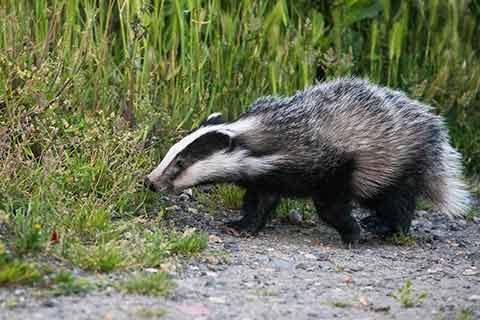- Find a Pet
- Advice and Welfare
- Ways to Give
- Get Involved
- What We Do
- Search
- My RSPCA
- Report a concern
- Sponsor
-
Colour modeVivid Calm
- Home
- Advice and welfare
- Wildlife
- Badgers
- Baby badgers
Found a badger cub alone
Badger cubs should only be taken into captivity as a last resort. Their average stay in a wildlife centre is six months, which is a long time in a young badger's life. Cubs taken into captivity must be handled as little as possible, and it's important to note the exact location where they were found in case they can be returned.

When do badgers breed?
The peak season for badger cubs to be born is in early February. Some cubs will be born early in late December and some as late as April.
Litters range from one to five cubs, but two or three cubs are most common. Cubs stay below ground and emerge from their sett around eight to ten weeks old. They may continue to be dependent on their mother for some time afterward.
Found a baby badger?
If you find a badger cub on its own and it’s unclear if the badger is injured or not, watch and wait for an hour or two. Check to see:
- If its eyes are open and it looks healthy, monitor from a distance for 24 hours (at least overnight).
- If you're worried that there's no adult badger with the cub, leave dog food and water nearby, and check again in 24 hours. Leaving food out daily will also help cubs during dry weather.
If you find a badger cub on its own and any of the following is obvious then contact us on 0300 1234 999:
- The badger cub is in immediate danger (by a main road)
- Sick or injured
- Signs the badger sett has been damaged
- The cub's eyes are closed
- The cub is still on its own in the same place after you've waited for 24 hours
- You can see the cub's mother is dead
Badger cubs can bite, so don't handle them. Only touch them if they genuinely need help. Badger cubs need expert care and facilities to survive.
Don't try to rescue, handle or transport the badger yourself as they can be aggressive when stressed or injured.
Because cruelty and neglect calls are our top priority, it might take us longer than we’d like to help this badger. We appreciate your understanding.



